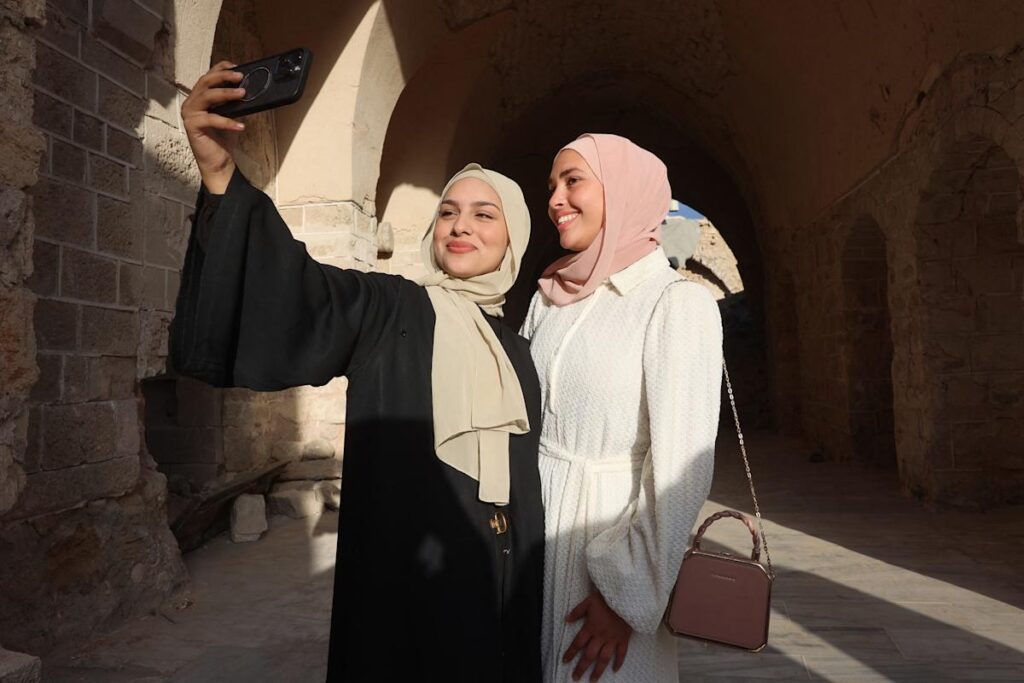“Eid Mubarak!”
Thousands of Muslims in Ohio are celebrating the second significant Islamic holiday, Eid al-Adha, also known as the Feast of Sacrifice, on June 6, 2025, the 10th day of the month of Dhul Hijjah. It is the second major religious celebration of the year for Muslims, following Eid al-Fitr at the end of Ramadan.
The final month in the Islamic calendar, Dhul Hijjah, began on May 28. On Eid al-Fitr, many Muslims will complete observing the first 10 days while others continue their Hajj pilgrimage in Mecca.
What is Eid al-Adha? What does it celebrate? Here’s more about the Muslim holiday.
What is Eid al-Adha? Saudi Arabia confirms start date for Islamic holiday, which commemorates sacrifice
The 12th and final month of the Islamic calendar is Dhul Hijjah. Eid al-Adha falls on the 10th day of Dhul Hijjah, which is June 6, 2025, as recently confirmed by Saudi Arabia.
According to the Quran, Eid al-Adha commemorates the Prophet Abraham’s willingness to sacrifice his son, Ishmael, for the sake of God, but God stopped him and sent a ram to be sacrificed instead.
Eid al-Adha is the second major Islamic holiday. The Islamic calendar is based on the lunar calendar, which helps determine and predict the occurrence of Islamic months and holidays.
What do Muslims do on Eid al-Adha?
Fasting for the first nine days of Dhul Hijjah is strongly encouraged, according to Islamic Relief. The fast ends on Eid al-Adha. It may feel strange for Muslims who fasted the first nine days of Dhul Hijjah to eat during daylight hours, but it is forbidden for Muslims to fast on Eid al-Adha.
Similar to Eid al-Fitr, Muslims wake up early in the morning on Eid al-Adha to begin preparing food and getting ready to attend mandatory Eid prayers at local mosques.
On Eid, Muslims will follow the way of the Prophet Muhammad, also known as Sunnah in Islam. Sunnah is followed every day, not only on Eid.
Sunnahs on Eid include taking a bath or shower in the morning, wearing one’s best clothes and perfume, taking a different path home from attending Eid prayer, or saying “Takbeer” (“Takbir”) to praise God on the way to Eid prayers. Muslims will hug their friends and family and greet them with “Eid Mubarak,” meaning “blessed festival” in Arabic.
Friends and families typically will gather in their homes and eat delicious food together, and children will receive money as gifts, also known as ‘Eidi’.
Specifically for Eid al-Adha, Muslims are encouraged to participate in Qurbani.
What is Qurbani, the Eid al-Adha sacrifice?
Qurbani, meaning sacrifice, is the slaughtering of a permitted animal, reflecting the sacrifice that Prophet Abraham was willing to make. Goats, cows, sheep, lambs and camels are some of the animals permitted to be sacrificed.
It is mandatory to give one-third of the meat to the needy. One-third goes to friends and family and the last third to oneself. Many Muslims will go to slaughterhouses that practice zabiha (the permissible method in Islam for slaughtering animals) for their Qurbani sacrifice, or donate to charities with Qurbani projects giving to those in need.
What is Dhul Hijjah?
The final Islamic month, Dhul Hijjah, began on May 28, 2025, with the sighting of the waxing crescent moon. It will last from 29 to 30 days.
Many Muslims consider the first 10 days of Dhul Hijjah the best days of the year. They are a time for Muslims to focus on strengthening their faith, according to Islamic Relief. After Ramadan, these 10 days are considered a second chance during the Islamic calendar to repent and attain blessings.
During Dhul Hijjah, Muslims will participate in Hajj, an obligatory spiritual journey, at holy sites in Saudi Arabia. Hajj begins on the eighth day of Dhul Hijjah, lasting for five to six days. It began on June 4.
Muslims unable to attend Hajj are encouraged to fast during the first nine days of Dhul Hijjah, as fasting can bring forgiveness of sins and great rewards. In Hadith, the Prophet Muhammad said that fasting during the first nine days of Dhul Hijjah forgives the sins of the previous year and the coming year, according to Islamic Relief.
Unlike Ramadan, fasting during these nine days is not mandatory. However, it is highly encouraged to fast, as it is Sunnah (the way of the Prophet), especially on the ninth day, called Yawm al-Arafah.
Muslims are forbidden from fasting on the 10th day of Dhul Hijjah, as Eid al-Adha falls on the 10th day.
This article originally appeared on The Columbus Dispatch: Eid al-Adha: Everything to know about second major Islamic holiday
Read the full article here


